PDFSD
Well-Known Member
- Joined
- Mar 27, 2024
- Messages
- 3,258
- Reaction score
- 11,873
sorry i have different idea of what constitute as amazing and her work comes nowhere near that.Her last show at Givenchy was amazing just watch it again last night.
sorry i have different idea of what constitute as amazing and her work comes nowhere near that.Her last show at Givenchy was amazing just watch it again last night.
Unfortunately she was very incosistent throughout her tenure.Her last show at Givenchy was amazing just watch it again last night.
pls No!!!!!!!!! dont you remember her chloe and givenchy she had enough chances its enough !!!!!
oh i don't hate her or her work and sure i know of some commercial success some parts had etc, but she does not have a strong vision or direction its just nice middle of the road things. it just exist but i don't engage with it as in admiration or case study of excellence, i understand people buying it as people buy many thing that are ok or less than ok.I remember. Her Chloé was performing very well, and has been influential to this day with all the dupes of her Nile, Drew, and Faye bags still floating around. I also remember how she made Pringle of Scotland a thing when LFW was still relevant. So yes, even if you hate her work, it doesn't change the fact that she's a successful designer, even after her unfocused tenure at Givenchy.
Michele vision or style lets say is misaligned at Valentino,its like putting rick owens at hermes its not the right marriage.Expecting anything that's not bland from Uniqlo is delusional, so is calling the industry F1 in the current climate. Vision? Michele has a distinctive creative language, and apparently it's not enough, just because you don't agree with it aesthetically. Jacquemus also has a total vision, and I don't think he would be called a good designer either. So yes, I'd rather enjoy CWK's products than wait for God knows what to come from the fashion heavens.
guys love it !!!! dream of it!!!!!! :I think Claire had clear vision at Givenchy. Her show, campaign, casting and others were very consistent and directional, (except arivancy) and it fitted with brand itself, even if it was little bit boring. She just couldn’t make the commercial success at there.
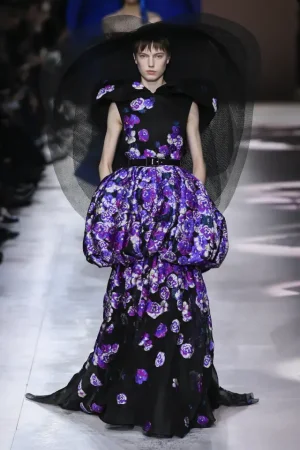
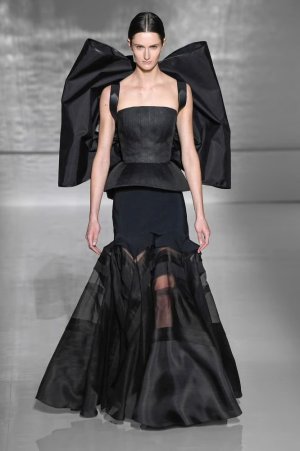
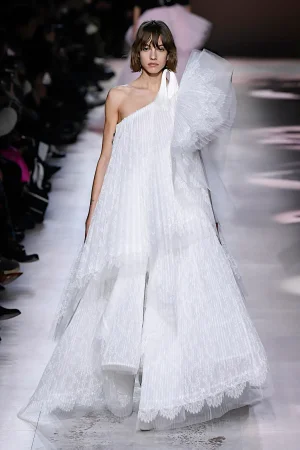
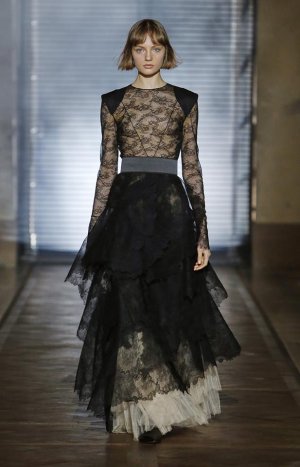
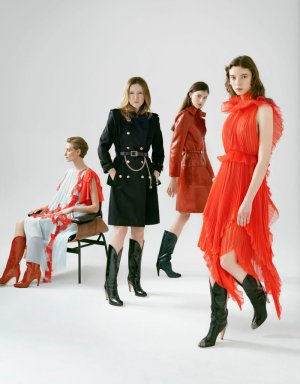
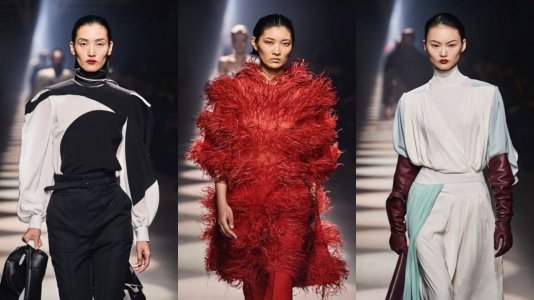
Play it fairly though, you picked the most overstyled and overthought couture looks she made.guys love it !!!! dream of it!!!!!! :
but i don't need to analyze Shein Riccardo Tisci by Claire for Givenchy .
not up to standards for me with all the if and but if and when but maybe.
nope!
View attachment 1434533View attachment 1434538View attachment 1434535View attachment 1434534View attachment 1434536
she was the pre blazy already before we knew it lol
View attachment 1434537
computer say no !
lol i just googled her and what ever popped up on first page i grabbed. no jokePlay it fairly though, you picked the most overstyled and overthought couture looks she made.
Karl was the best couturier ever in my opinion and I could show at least 5 looks from any of his collections that looked repulsive, cringe or overdesigned. Having bad looks in a collection doesn't necessarily mean the designer is bad.
First one is great if you remove the cringe oversized hat, second one you shall remove the oversized bow backpack harness.
Her couture never looked light or fresh, but the vision and the craftsmanship were there.
Now that you mention it, the FW20 show is indeed giving a bit of BV by MB redux: the oversized cocoon coats, the cuts.

 i juts needed some visual examples real quick.
i juts needed some visual examples real quick.not sure about the best but true either way. He had some pretty squeaky clean shows imo but seasons like SS93, SS07, SS15 got very messyKarl was the best couturier ever in my opinion and I could show at least 5 looks from any of his collections that looked repulsive, cringe or overdesigned.
